Opinion
The Ninth National Assembly and Electoral Act 2022
Published
3 years agoon
By
News Editor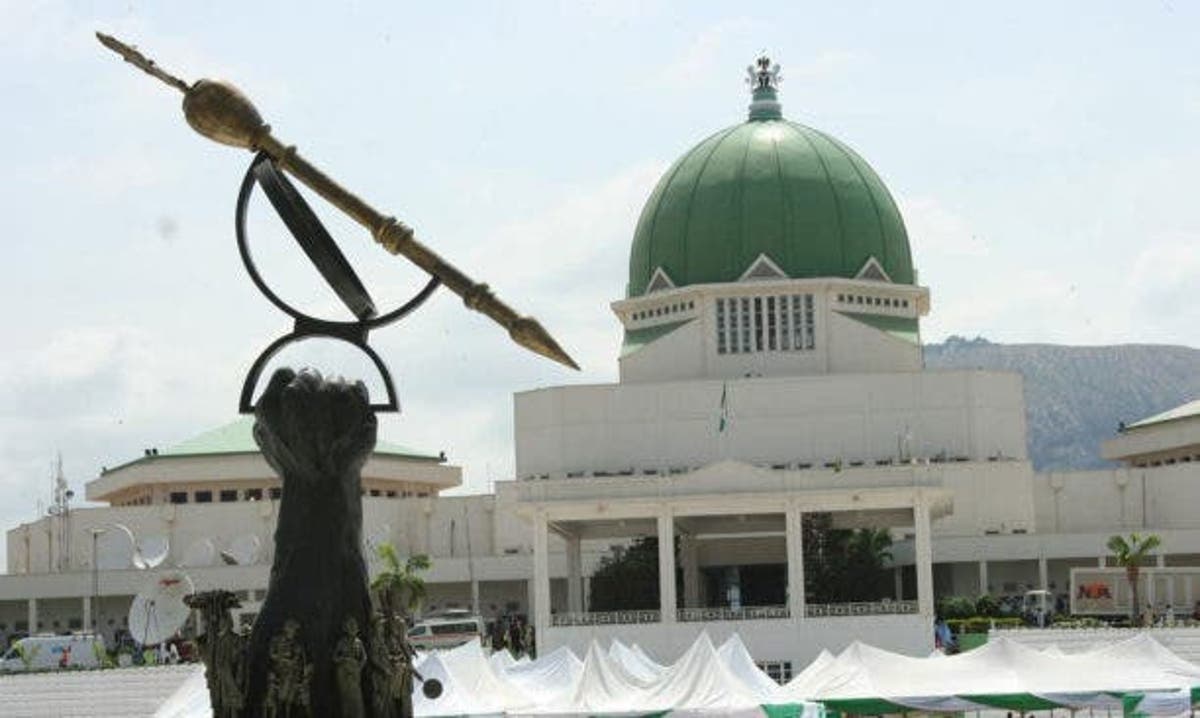
By Ola Awoniyi
The happy ending of Electoral Act No.6 2010 (amendment) Bill 2022, which was signed into law by President Muhammadu Buhari on February 25 after much apprehensions, reminds one of the Petroleum Industry Bill, aka PIB.
For almost two decades, the PIB was at the National Assembly, during which time it changed in shape and contents, and became an enigma too difficult for the parliament to handle. It took Ahmad Lawan’s Ninth National Assembly to deliver the bill from its “demons” and get the President to sign it into law, ending decades of frustration. Today, we now have the Petroleum Industry Act 2021.
Like the PIB, the electoral reform bill had been languishing at the National Assembly since 2017. It was eventually passed in November 2021, amid noise on the mode of transmission of election results.
But President Buhari declined assent to the bill and instead sent it back to the National Assembly in December 2021, precisely on the eve of the commencement of the lawmakers’ Christmas and New Year recess.
That was not the first, second or even the third time of its forth and back movement within the Three Arms Zone of Abuja.
The same bill was denied presidential assent thrice during the Eighth Assembly, a casualty of the frosty relationship between the Executive and that Assembly.
It is therefore good news for Nigerians and lovers of democracy that the President finally signed the bill into law on Friday, 25th February, 2022, marking the fourth time the electoral law was repealed and re-enacted since the return to democracy in 1999.
However, the back and forth movement of the bill this time around, before the eventual presidential assent on Friday, is significant for how it underscores the beauty of democracy and the health of that system in Nigeria.
While appending his signature, President Buhari said “the current bill comes with a great deal of improvement on the previous Electoral Bill 2021…From the review, my perspective is that the substance of the bill is both reformative and progressive.”
The successful birth of Electoral Act 2022 thus provides another opportunity to appraise the Ninth National Assembly and its responsiveness to the yearnings of the Nigerian people.
It has been exciting watching and listening to even the most critical civil society groups in the country applauding the National Assembly for a job well done and President Muhammadu Buhari for finally assenting to the bill.
There have always been very interesting comments about the Ninth National Assembly under Ahmad Lawan. Some of them have been complimentary, taking into account the many jinxes it has broken to improve the Nigerian legislative environment. Some try to put things in perspective, noting the high and the low points.
But some others have been deliberately venomous. To this category of public commentators, the Ninth Assembly is a rubber-stamp and has done no good. Some of them go as far as calling for it to be scrapped, forgetting that parliament is the fulcrum of democracy. In fairness to them, their dark view of parliament is not a recent or sudden affliction. They also had nothing complementary to say about the previous Assemblies.
However, this piece is not a specific response to the views of any of the stated tendencies. Rather, it is to record the extent this Ninth Assembly under Ahmad Lawan has gone to deliver an electoral law that for the first time in our recent history arrived to almost universal applause.
To start with, the Ninth Assembly made the electoral reform bill a top priority in its Legislative Agenda, which was launched at its inception in 2019. This decision was not just informed by the importance of the bill to the integrity of our electoral process and democratic governance. The lawmakers were also determined to avert a repeat of what happened to the bill in the previous dispensation.
The bill, which essentially was an amendment to the law made in 2010, suffered a monumental setback on about the eve of the 2019 polls, largely due to the cat and mouse relationship between the Executive and the Eighth Assembly. That era was characterised by distrust between the two arms of government. The rest is now history.
This time around, everything was done by the National Assembly to ensure the bill passed and assented to. But nobody anticipated that its passage would be this dramatic and exciting.
The drama notwithstanding, the entire process projected the Ninth Assembly as an institution that rose above the ego and political, sectional and other sentiments of its members to do the will of the people they represent.
Some observers may probably find it difficult to agree with this view. That is expected. But I stand to be corrected.
From the moment the Executive sent the bill to the National Assembly, work began in earnest. At a point, members of the public became uneasy at the length of time it took the relevant parliamentary committees to report back to plenary for the clause-by-clause consideration of the bill by each of the two Chambers.
It was during that clause-by-clause consideration that the first hurdle showed up. This had to do with the mode of transmission of result.
The drama was gripping in both Chambers. At some point, the House of Representatives had to adjourn sitting to invite experts to elucidate on the subject matter.
The Senate too was not spared of drama. Calling for a division to determine issue is provided for in the standing rules but this is rarely invoked. This time, in the midst of tension, it was invoked by the Senate Minority Leader, as his last card. But it failed to achieve the intended result.
Both Chambers eventually scaled through the hurdle after rowdy sessions. The contending parties and interested members of the larger society heaved a sigh of relief, thinking the matter had been resolved before the parliament adjourned on Sallah recess. But the feedback from the Nigerian people would not allow the lawmakers to rest until there was a recomittal of the bill immediately after they returned from recess.
The Senate had to adjust its earlier position on some clauses and also concur with the House, especially on the modes of transmission of election results and primaries by political parties.
The Senate had initially voted Direct or Indirect mode of primaries but was persuaded by the House to limit it to only one option by deleting the indirect option. They had thought that would deepen democracy but some Nigerians saw it as self-serving.
President Buhari too felt it was unfair to deny political parties options for their primaries. For this reason in particular, Buhari withheld his assent and sent the bill back to sender with explanations. That was the first time Buhari would send back a bill passed by the Ninth Assembly.
This development undoubtedly provoked fears that, with electoral reforms, history was about to repeat itself. Political pundits were sure that the bill was destined for a second death. The insinuation was that the APC-led Federal government was afraid of electoral reforms that feature electronic transmission of results.
But this Assembly had a promise to keep. All that was needed was further consultations with the Nigerian people. This they did during the Christmas and New Year recess.
On their return from the recess, the lawmakers amended the bill to provide three options by which the political parties can conduct their primaries.They went a step further by prescribing how to conduct each mode of the nomination process to forestall possible abuse.
For the Senate, that was about the third time of shifting position to get the bill passed. This was a clear demonstration that the Ninth Senate and indeed the Ninth Assembly are people-centred in their primary responsibility which is law-making.
They have demonstrated flexibility, sensibility and sensitivity to the yearnings of the people they represent. It is this approach to their national assignments that has now given the country a new Electoral Act ahead of the 2023 polls. For the Ninth Assembly, this is a promise made and promise kept.
President Buhari too has demonstrated good faith by appending his signature to the bill despite his reservations about a particular clause that affects political appointees. Buhari did not hide his discomfort about an aspect of clause 84 of the new Electoral Act which bars political appointees from voting as delegates or being voted for at a convention or congress of political parties for the purpose of nominating candidates for any election.
Buhari’s observation that the provision, in his opinion, contradicts the provisions of the Constitution, would have been enough reason for him to withhold assent again. But he opted against that, due to the cordial relationship between the National Assembly and the Executive.
It is however very doubtful that the avowed critics of the present dispensation will see it this way. It is on record that Buhari acted in the same manner on the Petroleum Industry Act 2021 and the 2022 Budget.
Here is precisely what the new Electoral Act 2022 says on interesting issues like voting devices, mode of transmission of election results, mode of selection of nomination of candidates by political parties and the fate of serving political appointees:
Ballot boxes and voting devices:
Clause 41:
(1) The Commission shall provide suitable boxes, electronic voting machine or any other voting device for the conduct of elections.
(2) The forms to be used for the conduct of elections to the offices mentioned in this Act shall be determined by the Commission.
(3) The Polling agents shall be entitled to be present at the distribution of the election materials, electronic voting machine and voting devices from the office to the polling booth.
(4) Polling agents who are in attendance at a polling unit, may be entitled, before the commencement of the election, to have originals of electoral materials to be used by the Commission for the election inspected, and this process may be recorded as evidence in writing, on video or by other means by any Polling Agent, accredited observer or official of the Commission.
(5) A Polling Agent who is in attendance at a polling unit, may observe originals of the electoral materials and this may be recorded as evidence.
(6) The Commission shall, before the commencement of voting in each election, provide all election materials for the conduct of such election at the polling unit.
Clause 50(2): Subject to section 63 of this Act, voting at an election and transmission of results under this Act shall be in accordance with the procedure determined by the Commission.
Nomination of candidates by parties:
Clause 84(2): The procedure for the nomination of candidates by political parties for the various elective positions shall be by direct, indirect primaries or consensus.
Consensus Candidate:
Clause 84(9):
(a) A Political Party that adopts a consensus candidate shall secure the written consent of all cleared aspirants for the position, indicating their voluntary withdrawal from the race and their endorsement of the consensus candidate.
(b) Where a political party is unable to secure the written consent of all cleared aspirants for the purpose of a consensus candidate, it shall revert to the choice of direct or indirect primaries for the nomination of candidates for the aforesaid elective positions.
(c) A Special Convention or nomination Congress shall be held to ratify the choice of consensus candidates at designated.centres at the National, State, Senatorial, Federal and State Constituencies, as the case may be.
Political Appointee not Eligible as a Voting Delegate or Aspirant
Clause 84(10): No political appointee at any level shall be a voting delegate or be voted for at the Convention or Congress of any political party for the purpose of the nomination of candidates for any election.
Ola Awoniyi is Special Adviser on Media to the Senate President
You may like
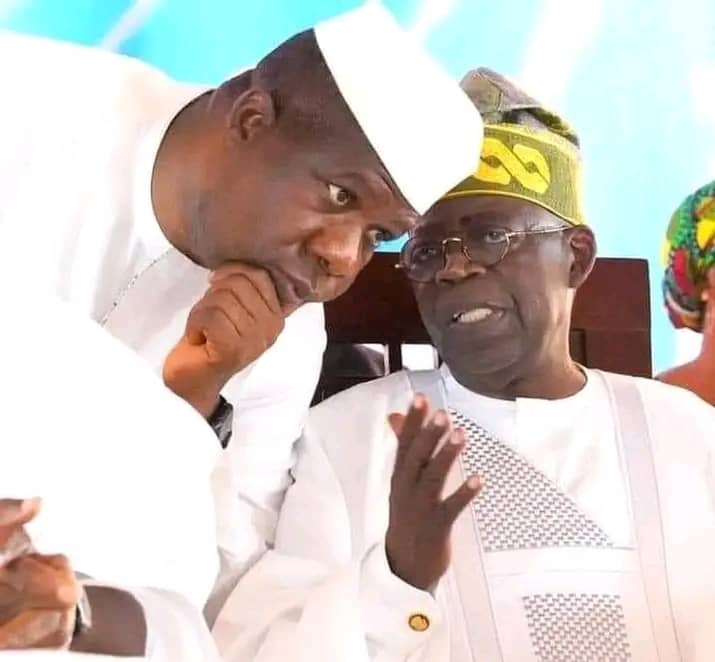
By Senator Opeyemi Bamidele, CON
Today, I celebrate a timeless doyen of democracy and an astute mentor of many leaders, President Bola Ahmed Tinubu, GCFR. By global standards, Asiwaju is truly a man of the people and the visionary of our times, who devoted his life to pursuing the greatest goods to the greatest number of people. This has been the core of his heart and life from when he was a boardroom guru in the 1980s to when he joined partisan politics in the 1990s.
Born on March 29, 1952, Asiwaju’s foray into politics in 1991 was never a mistake, though it came with a huge sacrifice that cost dearly. As a Senator of the Federal Republic of Nigeria, I celebrate how Asiwaju firmly stood with the people rather than dining with the military oligarchy that annulled the outcome of the June 12, 1993 presidential election ostensibly won by Chief M.K.O Abiola (now of blessed memory), an annulment that set our fatherland back to the pre-colonial era.
I also celebrate how Asiwaju teamed up with the progressives to establish the National Democratic Coalition, a movement of likeminds and progressives that fiercely challenged the regime of the late tyrant, General Sani Abacha; mobilised support for the restoration of democracy to our fatherland and campaigned for the recognition of Chief M.K.O Abiola as the winner of the June 12 presidential election. And this conviction and pursuit eventually earned him exile from the land of his birth. Yet, he was undaunted in his quest to see his fatherland liberated from the era of locusts that pitched us against the comity of nations.
I celebrate how Asiwaju returned to Nigeria in 1998 when the darkest era of the late tyrant finally folded into the abyss of extinction after fighting doggedly on the side of the people. The end of the dark era culminated in his election as the third civilian governor of Lagos State in January 1999. Though faced with diverse heinous challenges at the inception, Asiwaju came out strong and victorious, setting Lagos on the path of irreversible progress, reforming the coastal state to a globally competitive smart city and turning it to a constant destination of strategic investment. And the world can no more look away from Nigeria just because of the pro-people reforms he carried out in Lagos.
Asiwaju’s quest for the greatest goods for the greatest number of people pushed him to national politics, the kind of venture that consumed the nationalists and patriots who lived before him. At different times, he challenged the traditional forces that held our fatherland down. He first fought for the soul of our fatherland on the platform of the defunct Action Congress, and it did not entirely produce an enviable outcome. He later switched to the Action Congress of Nigeria, and banished the regressive elements from the six states of the South-west. Full of hope, Asiwaju stressed forth his hands across Benue and Niger, and together, they rescued Nigeria from the hands of the regressives.
At 72, as the President of Nigeria, Asiwaju has brought rare conviction and passion to the business of public governance, courageously daring the forces of regression and tirelessly pursuing the interests of over 227 million regardless of their faith, ideology and race. The task is truly daunting, but the victory is undoubted. Only within 10 months of Asiwaju’s ascendancy to the presidency, we have started witnessing the dawning of economic restoration and the ray of political renaissance under his watch.
As I nostalgically reflect on the journey so far, I remember his labour and toiling for our fatherland, even when most misunderstood. I remember his undying passion to lead the path to a greater nation, even when the future looks so bleak and always unsure. I remember his utter commitment to a movement of patriots and progressives eternally sworn to rescue our fatherland from the claws of the ageless vultures and the blood-thirst beaks of mindless hawks that always seek to feast on the flesh of Nigeria. Despite their ferocity, he eventually subdued the enemies of our souls, even right in the midst of inferno they set ablaze for us all.
That is the reality in our fatherland today. Asiwaju is at the forefront of that reality. And we are all witnesses to this history, even from its making to its maturation. Now, as he graciously turns 72 on this auspicious day, I cannot, but earnestly pray God grants him longer life and inner strength to steadily paddle the ship of our nation to the coast of endless ecstasy.
Heartiest 72nd Birthday, my leader and mentor.
- Bamidele, Leader of the 10th Senate, writes from Abuja
Opinion
Chronicling Deputy Senate President Barau’s 100 days of parliamentary excellence
Published
1 year agoon
September 18, 2023By
News Editor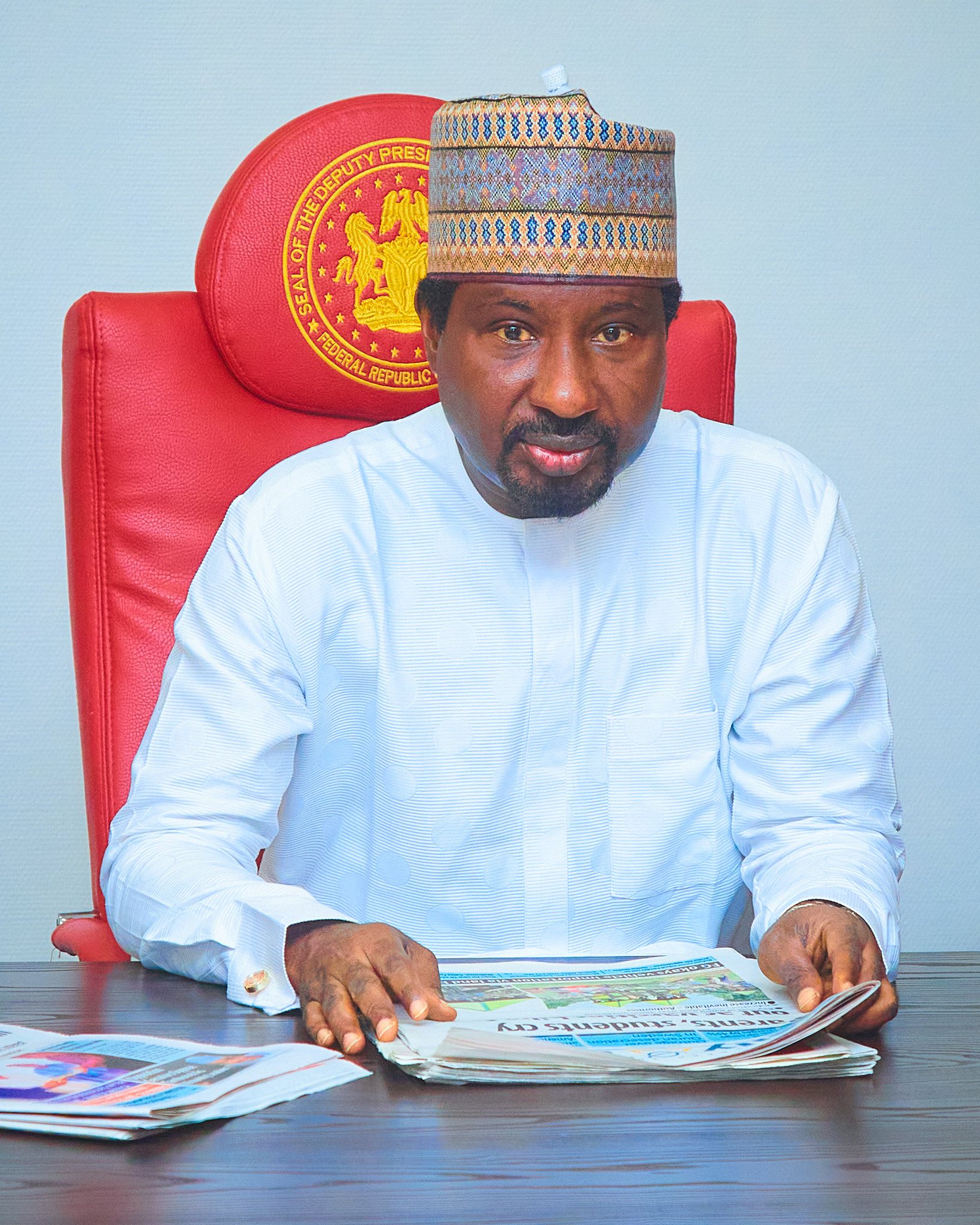
By Ismail Mudashir
Tomorrow, Wednesday, September 20, 2023, the 10th Senate will mark its first 100 days following its inauguration on June 13, this year.
The inauguration of the parliament followed President Bola Ahmed Tinubu’s proclamation, via a letter to the Clerk to the National Assembly, Sani Magaji Tambawal, in line with Section 64(3) of the 1999 Constitution.
The first duty of the senators was the election of the presiding officers – the President of the Senate and the Deputy Senate President. After a keen contest, Senator Godswill Akpabio, from Akwa Ibom State, emerged as the President of the Senate, defeating Senator Abdulaziz Yari, a former governor of Zamfara State.
Apparently, because of his rare personality traits, Senator Barau I. Jibrin, a fourth timer at the National Assembly (three times in the Senate – 2015 to date and once in the House of Representatives – 1999 -2003) emerged as the Deputy President of the Senate unopposed as all his colleagues threw their weight behind him.
Three weeks after the emergence of the two presiding officers, eight principal officers were named, thus the leadership of the 10th Senate was duly constituted. With the constitution of the leadership, the lawmakers got the parliamentary work started as urged by the President of the Senate, Senator Akpabio, in his speech on July 4, 2023, titled, “Let’s get the work started.”
On July 6, Senator Barau, for the first time, presided over the plenary session. During the session, five motions were moved including the one on Mallam Aminu Kano International Airport, Kano.
After the July 6 session which attracted applause from across the Red Chamber and beyond, Senator Barau had presided over the plenary on other occasions in the absence of the President of the Senate in the last 100 days.
Among the critical motions sponsored by the Deputy President of the Senate during the period under review was the one on the poor state of road infrastructure and the menace of gully erosion in the country. Also to his credit was a motion on the emergence of President Tinubu as the Chairman of the Economic Community of West African States (ECOWAS).
Four bills of the Deputy President of the Senate, including the one on the creation of a development commission to fast-track the development of the country, have been introduced at the Red Chamber.
* Balanced appointments
Recognizing the heterogeneous nature of the country, the Deputy Senate President selected his seven key appointees from across the country – four were drawn from Kano State – two from the southern part of the country – Oyo and Imo states, and one from Kwara State – North Central geopolitical zone.
The appointees who hail from Kano State include the Chief of Staff, Professor Muhammad Ibn Abdullahi; the Special Adviser (Policy & Monitoring), Professor Bashir Muhammad Fagge; the Special Adviser (Political), Yusuf Aliyu Tumfafi and the Special Assistant (Media & Publicity), Shitu Madaki Kunchi.
The Special Adviser (Media & Publicity), Ismail Mudashir, hails from Kwara State; the Special Adviser (Special Duties), Idris Abiola Ajimobi, Oyo State; and the Special Adviser (Administration), Mrs. Ngozi Ndawi Nkemdirim, from Imo State.
Commendations have followed what has been described by lawmakers, media practitioners, civil society organisations, and other stakeholders in the country as balanced appointments.
* Constituents driven representation
For Senator Barau, his representation has been constituents and pro-masses driven. Hence the unfettered access he grants to people from Kano North, Kano State, and beyond; the old, young, rich, and poor; APC members and members of other parties.
For instance, in August, he instituted a scholarship programme through which hundreds of tertiary institution students from Kano North Senatorial District were given N50,000 each. The programme was flagged off at Bayero University Kano (BUK).
Before the scholarship scheme, the Deputy President of the Senate had paid WAEC and NECO fees for hundreds of secondary school students.
To boost agriculture in the state, Senator Barau also distributed fertiliser to farmers across the 44 local government areas of the state.
According to beneficiaries, this initiative would enhance their output and contribute towards attaining food security in the state and country.
On September 6, the people of Rimindako community in Bagwai LGA of Kano State, through a human rights activist, Barrister Muhammad Zubair, lauded the Deputy President of the Senate over the construction of Yasanya bridge and access road in their community.
· Visits Abuja Industrial Park
On the invitation of the Zeberced Group, the Deputy President of the Senate was at the Abuja Industrial Park located in the Idu Industrial District on September 4. Sitting on 245 hectares of land, the park will house 200 factories, a helipad, a train station, a lorry park, a bank, a recycling station and a power plant, among others when completed.
The park is an initiative of the Zeberced Group, jointly founded by Adil Aydin Kurt and Cemal Kurt from Turkey. The company’s Managing Director, Aidl Aydin Kurt, conducted Senator Barau around the project. Kurt told his visitor that the project when completed will provide 40,000 direct jobs to Nigerians.
Moved by the 40,000 jobs to be created , Senator Barau said the parliament would provide the necessary legislative support to the company, saying the project was in line with the commitment of the federal government to address unemployment, boost and diversify the country’s economy.
* Keeping parliament alive during recess
Even with the annual recess embarked upon by the parliament on August 7, the office of the Deputy President of the Senate has been active, five days a week (Mondays – Fridays), with Senator Barau performing official engagements. During the period, he met with ministers, heads of agencies, civil society/pressure groups including the promoters of Tiga and Gari states, clerics, and party leaders, among others.
During their visit, stakeholders of the All Progressives Congress (APC) in Kano North Senatorial District, led by Hon. Sani Mukaddas, hailed Senator Barau, describing him as an exceptional lawmaker and leader.
In the same vein, a forum of former zonal women leaders of the APC has thumped up Senator Barau, saying he is not discriminatory in his dealings with all.
“Continue to support us, we won’t disappoint you, Insha Allah,’’ were the words of the Deputy President of the Senate to those who visited him. He also assured them of the commitment of the parliament to support the executive with the necessary legislation to address the challenges facing the nation.
Mudashir is the Special Adviser on Media and Publicity to the Deputy President of the Senate
Opinion
Ahmad Lawan: The Doyen of Nigerian Parliament @64
Published
2 years agoon
January 12, 2023By
News Editor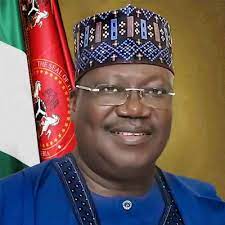
By Ola Awoniyi
Ahmad Ibrahim Lawan, the Distinguished Senator representing Yobe North Senatorial District of Yobe State, turns 64 on 12th January, 2023. Within those almost six and a half decades, he has seen it all, especially in public service. In just about five months from now, he will conclude his tenure as the 14th President of the Nigerian Senate and sixth consecutive session in the National Assembly.
Lawan has been around for so long in Abuja that it is easy to assume he was never elsewhere. Yet, his earliest work experience was in the academia, and it lasted long enough for him to bag a Doctorate degree in Remote Sensing and Geographic Information System (GIS) before yielding to the pull of partisan politics in 1998.
In that calling, Lawan has clearly made his mark. And not just because he attained the dizzying height of third in the order of succession. People see politics as a dirty game. But Ahmad Lawan does not see it that way. For him, politics should not change the core beliefs and principles of an individual. Service to the people should be the driving objective of partisan political practice. And whether in politics or elsewhere, Lawan believes one’s yes must mean yes.
This has, in no small measure, paid off for Lawan in his almost 25 years in politics, 24 of which has been as a federal lawmaker. A member of the pioneer class of the National Assembly of the Fourth Republic, he was first elected in 1999 to the House of Representatives from the Bade/Jakusko Federal Constituency of Yobe State. He was re-elected to the House in 2003. But in 2007, Lawan crossed over from the Green Chamber to the Red Chamber as the Senator for the Yobe North District. He was re-elected to that Senate seat in 2011, 2015 and 2019.
If you know what it takes to win elections in Nigeria, you would appreciate that what multiple winners like Lawan have accomplished is no small feat. His numerous reelections underscore that his constituents appreciate the quality of representation that he has been providing to them in Yobe North District.
The life of a politician is not all gloss as it may sometimes seem. Election is not a tea party. A parliamentarian in particular needs very hard work to get a return ticket from the party. In Parliament, getting the support of colleagues for motions and bills requires deep knowledge and passion for the subject; focus and temperament. It is actually an extra burden if you are a Presiding Officer in parliament. Success or failure at every stage has its implications.
No wonder, Mallam Nasir El Rufai, the outspoken Governor of Kaduna State, at a recent public function in Abuja, said he has no intention of seeking a seat in the National Assembly like many former governors now do.
Speaking as chairman at the second edition of the “Distinguished Parliamentarian Lecture” organised by the National Institute for Legislative and Democratic Studies(NILDS): the governor said:
“The Legislature is one branch of government I know I can never function. The hardwork needed to convince people to support even your motion is something some of us have no patience for. You know management in the Executive is very straightforward. It is very hierarchical and once you are a governor, your word is almost law. But in the Legislature, everybody is equal and there is no management that is more difficult than managing your equals. I don’t envy Mr Speaker and the Senate President at all because their job perhaps is the hardest job in this country. Managing equals is difficult.”
Despite the difficulties, Ahmad Ibrahim Lawan has shone at the National Assembly since its inauguration in 1999. Lawan is today one of only two lawmakers remaining in the National Assembly from the 1999 set. He has also attained the most enviable of heights in his many years of service at Parliament, becoming “first among equals” in the Upper Chamber, which is the very pinnacle of the hierarchy in the parliament of any democratic society. That makes him the Doyen of the Nigerian Parliament.
In his three and a half years as the 14th President of the Senate and Chairman of the ninth National Assembly, he has set a high standard for whoever will be his successors. He has demonstrated the value of parliamentary experience as a prerequisite for election as a presiding officer for the Upper Chamber.
His experience of more than two decades in parliament has made him an encyclopedia on the inner workings of the National Assembly. Lawan has the standing rules at the tip of his fingers. When any of his colleagues raises a Point of Order, he would ask the colleague to specify which order. But before the text is read out, Lawan already knows the provision and its applicability.
As “first among equals,” Lawan knows the importance of fairness in the conduct of the affairs in plenary. Even though the majority will always have its way, the minority must have its say as well.
Lawan knows the value of a bipartisan Legislature. Perhaps the most difficult aspect of the job of a Presiding Officer is to know when to hit the gavel and when not to. As one of Lawan’s aides, I heard him say, many at times, that he had no choice but to hit the gavel or rule in favour of a majority voice vote even when he held a different view to the voice vote. That is democracy.
Lawan also knows the value of promoting harmony between the Legislature and other arms of government, particularly the Executive, without compromising the independence of the Legislature.
Lawan has seen it all in Parliament. From my vintage point of observation, I quickly realized that he did not become the 14th President of the Senate and Chairman of the Ninth National Assembly by happenstance. It was the result of long years of self-preparedness, self-discipline, consistency, perseverance and tenacity of purpose.
Those attributes are essential for success in any endeavour and Lawan obviously learned that very early. And wherever he goes next, they will accompany him and pave the way for more success.
As I wish the Sardaunan Bade a happy 64th birthday, I also wish him more success in his future endeavours.
***Awoniyi is Special Adviser on Media to Senate President
Latest News
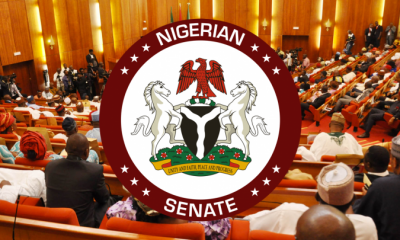

Natasha Not Suspended for Sexual Harassment Allegation, But Violation of Standing Orders, Senate Clarifies
ShareThe Senate has faulted pervasive claims that one of its members representing Kogi Central, Senator Natasha Akpoti-Uduaghan was suspended for...


Nigerian Christians Begin Lent With Ash Wednesday
ShareNigerian Christians have joined their counterparts around the world to celebrate Ash Wednesday which officially heralds the commencement of the...


Bill To End HND, BSc Dichotomy Scales Second Reading In The House
ShareA bill to abolish the dichotomy and discrimination between Bachelor’s Degree holders and Higher National Diploma (HND) holders has scaled...
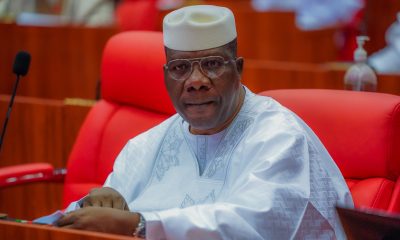

N’Assembly Positioning Nigeria For One Trillion Dollar Economy by 2030 – Bamidele
ShareThe Leader of the Senate, Senator Opeyemi Bamidele on Tuesday reeled out the accomplishments of the 10th National Assembly, saying...
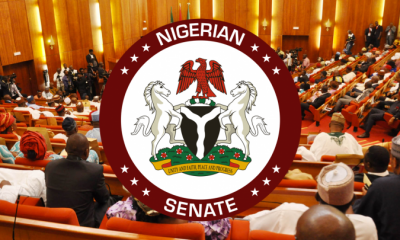

Tax Reform Bills: Senate To Consider Viable Opinions Of Stakeholders
ShareThe chairman, Senate committee on Finance, Senator Sani Musa, says the Senate will consider viable opinions of all stakeholders in...
